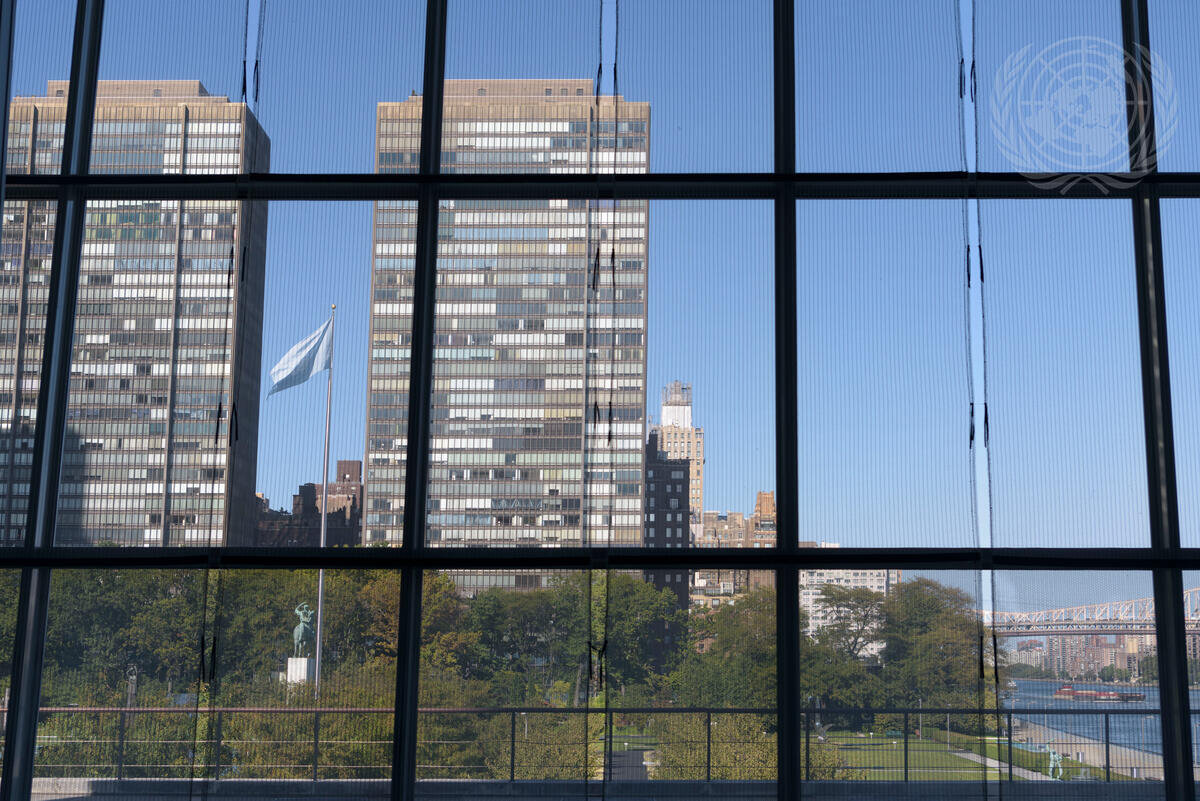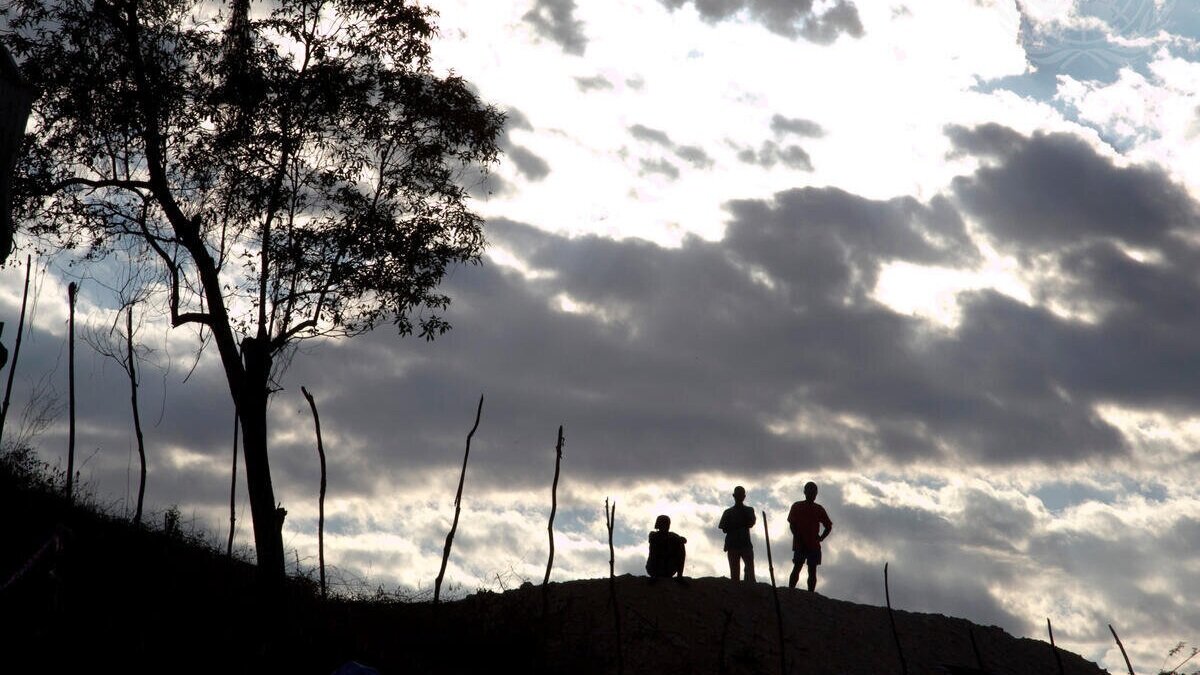Is there a path to criminal justice for victims of sex crimes committed by UN personnel?
For over 75 years, the UN has served as the world's arbiter of justice and human rights, yet it has failed to ensure accountability for crimes committed by its personnel. Victims of sexual abuse committed by UN personnel are denied access to justice and must fight to have their rights recognized. The simple truth is that unless the UN’s 193 Member States agree to create a mechanism for genuine accountability, impunity will continue.
Ordinarily, a victim of sexual violence can file a complaint with national authorities. Those authorities are then able to undertake a criminal investigation and—if warranted—prosecute the accused. A crime victim can also seek recourse through international law if her government fails to uphold her basic human rights, rights that include access to a court and access to an effective remedy.
However, victims of rape and other forms of sexual abuse committed by civilian UN personnel can expect no such recourse. When a woman is raped by someone working for the UN, she must navigate a complicated system that will almost certainly not lead to criminal punishment for the perpetrator.
1. Impunity in practice:
sexual abuse committed in DRC during the Ebola response
Media reports have drawn attention to a pattern of sexual abuse committed by personnel working for the World Health Organization (WHO), a UN specialized agency, against women and girls in the Democratic Republic of the Congo (DRC) during the international aid response to the 2018-2020 Ebola outbreak. More than 70 women told reporters that they were sexually abused by personnel assembled by WHO. Many of the victims were offered relatively well-paying jobs in exchange for having sex with high-ranking WHO officials, and at least one woman told the reporters that she was raped. A separate news story revealed dozens of similar allegations, as well as a high-level cover-up. None of the perpetrators have been held accountable.
In the wake of media reports and public pressure, WHO created a so-called “Independent Commission” to “investigate” the allegations. However, the Commission is far from independent from the embattled UN agency. It reports to WHO leadership, and WHO staff determine what evidence the commissioners can and cannot access.
Crucially, the Commission does not have criminal authority. As is the case with the internal, administrative “investigations” undertaken by the UN itself, the Commission cannot conduct criminal investigations into the allegations or charge and prosecute the accused. Like UN investigators, the commissioners cannot issue search warrants, search non-UN premises without permission, subpoena witnesses, or compel non-UN employees to answer questions.
2. Pathways to criminal justice?
The WHO Independent Commission, like UN commissions that have come before it, will not lead to criminal accountability. So, what can a victim of sexual violence committed by someone working under the UN flag do? To pursue justice, she will need to navigate a complex system designed to protect the UN over victims while facing astronomically low odds of seeing the rapist face legal consequences.
A) Use of domestic courts
The first option for a victim of a sex crime committed by someone working under the UN flag is to seek recourse from the domestic courts of her country. Using the example of the WHO Ebola response scandal described above, the government of the DRC has a legal obligation to protect and promote the rights of its citizens. Access to a court or to an alternate legal remedy is considered a fundamental human right, provided for in all major international human rights instruments.[1]
However, if a victim decides to pursue legal action through the DRC court system, she must wait—often indefinitely—for the UN to clarify the immunity status of the accused. If a crime might have been committed, it is the UN’s responsibility to waive the alleged perpetrator’s immunity or formally declare that immunity does not apply. While immunity only applies to actions undertaken as part of the perpetrator's official UN functions, and sexual offenses can never form part of those functions, the UN insists on conducting its own administrative investigation into the substantive facts of a case before passing on an allegation to national authorities or clarifying an immunity status question as described.
As we explain in more detail here, the UN seldom fulfills its responsibility to clarify immunity. When it does, the long delay caused by the UN’s administrative investigation dooms most criminal investigations before they have had the chance to begin. In short, the UN system is designed in such a way that its personnel cannot be held criminally accountable unless the Organization decides to lift the veil of immunity.
If the UN refuses to waive immunity or declare that immunity does not apply, the case cannot proceed in the DRC—or any other—court system. However, the DRC remains responsible for upholding its citizens’ human rights. This leaves the DRC government, and the governments of other countries hosting UN personnel, with two conflicting obligations under international law: they are bound to grant immunities to international organizations (such as the UN) and their personnel, but they are also bound to grant their citizens access to courts or access to an effective remedy. Too often, it is simply impossible for domestic authorities to do both.
B) Reliance on Extraterritorial jurisdiction
The UN’s preferred approach in sex abuse cases is to circumvent the government of the country where the crime occurred and to instead refer cases to the perpetrator’s country of nationality. Although the host state has primary jurisdiction over crimes committed by the UN personnel working there, the UN has long argued that certain countries riddled with conflict cannot fairly dispense justice against UN personnel because the police and court systems are in crisis. This pathway relies on domestic extraterritorial jurisdiction laws which may (but often do not) allow the perpetrator’s country of nationality to prosecute offenses that occurred abroad.
Even if the perpetrator’s country of nationality does have extraterritorial jurisdiction legislation allowing it to prosecute a particular case, doing so is often politically unpopular and/or prohibitively expensive for that government. This option is further complicated by the fact that the UN does not disclose the nationalities of civilian personnel, so the victim may not know where her case is to be investigated or heard. Relying on the perpetrator’s country of nationality to investigate and prosecute also takes the justice process far away from where the crime occurred, meaning that the victim (and members of the host community) will likely not be present during the investigation or trial.
Unless the UN decides to clarify immunity, however, the perpetrator cannot be criminally investigated or tried in the court system of any country, regardless of the justice system’s capability. The immunity granted to UN personnel—and the UN’s refusal to clarify the status of that immunity—will have squashed the victim’s case before it is ever able to get off the ground.
C) Action against the UN?
Should the UN deny justice to the victim by refusing to clarify immunity and refusing to provide her with alternative legal recourse, the Organization would be in breach of its obligation to uphold the victim’s fundamental human rights. The victim could argue—before domestic or international human rights courts—that the UN has violated her right to access to a court by failing to clarify immunity and has violated her right to an effective remedy by not providing an alternative justice mechanism.
Indeed, the International Convention on the Privileges and Immunities of the United Nations clearly establishes a duty on the UN to provide remedies to victims for harms caused by the UN, yet the Organization has thus far failed to establish a mechanism to receive claims against it.
As long as the UN continues to deprive a victim of her human rights, the responsibility falls on the international community to provide some alternative pathway to justice. In this vein, international courts and legal scholars have criticized absolute organizational immunity as interfering with a victim’s right of access to justice. In 1966, the Brussels Civil Court first set the stage for human rights-based challenges to the immunity of international organizations[2] by criticizing the fact that "there is no court to which the appellant can submit his dispute with the United Nations."[3] The Brussels Labour Court of Appeal handed down a more forceful related decision in 2003, ruling that the immunity of the European Union is not absolute, but is instead contingent upon an alternative dispute settlement mechanism being made available.[4] In 2009, the Belgian Court of Cassation further ruled that the alternative dispute mechanism provided must meet certain criteria, such as independence from the organization, to ensure due process.[5]
To date, no court has restricted the UN's organizational immunity based on the UN’s failure to provide an alternative justice mechanism. Therefore, the Organization remains able to shield itself from accountability just as it shields perpetrators.
Conclusion: Immunity remains a shield
Where does this leave a victim of UN sex abuse? There is no recourse available to her if the Organization deprives her of her right to justice by refusing to clarify immunity or implement another legal justice mechanism.
The victim may seek justice from her own government, the perpetrator’s government, the UN Organization itself, and the international community at large. However, her ability to access any legal remedy is contingent upon the UN choosing to clarify the immunity of its personnel and choosing to allow its employees to be held criminally accountable. If the Organization continues to misuse immunity to shield its personnel from all systems of criminal justice, those working under the UN flag will continue to commit rape and other sex crimes with impunity.
[1] This includes the Universal Declaration of Human Rights, the International Covenant on Civil and Political Rights, the European Convention on Human Rights, the American Convention on Human Rights, and the African Charter Human and Peoples' Rights.
[2] See Manderlier v Organisation des Nations Unies and Etat Belge (1966), https://opil.ouplaw.com/view/10.1093/law/9780198743620.001.0001/law-9780198743620-chapter-40.
[3] Rosa Freedman, “UN Immunity or Impunity? A Human Rights Based Challenge,” The European Journal of International Law 25:1 (2014): 252.
[4] See Siedler v Western European Union (2003), https://opil.ouplaw.com/view/10.1093/law:ildc/53be03.case.1/law-ildc-53be03.
[5] Cedric Ryngaert, “The Immunity of International Organizations Before Domestic Courts: Recent Trends,” International Organizations Law Review 7 (2010): 136.
Banner image: Ebola survivors attend a weekly meeting of the Ebola Survivors Association in Beni, DRC, in 2019. (Credit: UN Photo)
Posted August 12, 2021





